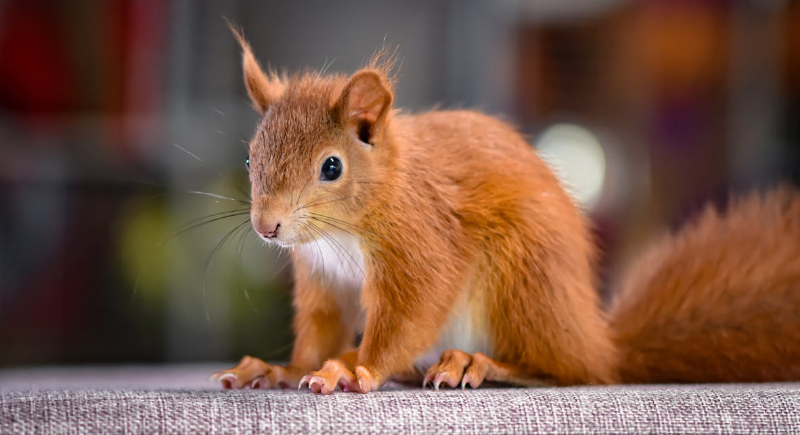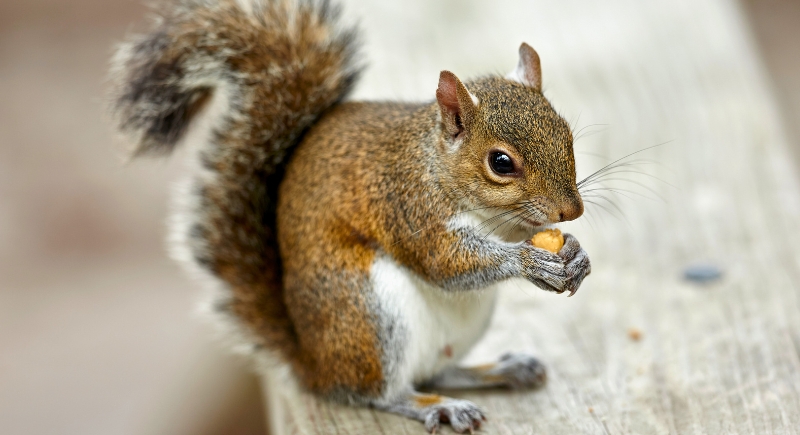3 Major Reasons Why Squirrels Do Not Make Good Pets
Squirrels may be fun to watch in the park, but keeping one inside is a different story. Their quick movements and curious behavior may seem entertaining at first, yet those same traits create constant challenges in a home.
Wildlife experts and veterinarians agree that squirrels need space, structure, and diets that people cannot easily provide. These animals also pose risks that most owners never expect, including injury and property damage. The idea of raising a squirrel might sound charming, but it rarely ends well for the animal or the person trying to care for it.
They Require Constant Attention and Space

Image via pexels/Alexas Fotos
It is common knowledge that squirrels live in motion. They climb, leap, and explore all day, which means they need large, secure enclosures and daily activity outside of a cage. Wildlife rehabilitators say they depend on at least two to three hours of active play every day. Without it, they become frustrated and destructive. They do not settle into routines like dogs or cats, and they cannot handle long stretches alone. A few hours without supervision can lead to shredded furniture, chewed wires, or claw marks on walls.
Even experienced handlers describe them as exhausting to care for, with nonstop energy that leaves no time for breaks. Their need for stimulation makes ordinary home life impossible. These are animals designed for the wild, where they can move freely and never face the limits of an apartment or house.
Their Teeth and Claws Cause Serious Damage
Squirrels may look harmless with their twitching tails and restless energy, but up close, their natural tools tell a different story. Every part of their body is built for survival in trees, not for domestic purposes. Their claws, for instance, evolved to grip bark and scale rough surfaces, which dig in deep and leave scratches.
Wildlife control professionals often wear heavy clothing to protect themselves when handling them. Their teeth present an even greater issue. Squirrel teeth grow continuously, which forces them to chew on wood, plastic, and anything they can reach to wear them down. These natural actions lead to ruined furniture, torn flooring, and even fire hazards when they gnaw on wires.
They also lack a bite inhibition reflex, so every bite carries their full strength. One bite can easily break skin and cause infection. These traits are not signs of aggression but normal squirrel behavior. Inside a home, though, those instincts make them unsafe companions.
Their Diet and Health Needs Are Difficult to Maintain

Image via Getty Images/michael jarecki
In addition, feeding a squirrel properly requires time, expense, and expertise. They need a diet rich in calcium, balanced with fruits, vegetables, insects, and specialized supplements. If they do not have that balance, they can develop a condition that causes weakness and paralysis.
Experts often spend hours preparing food for them, which means collecting natural materials or cooking nutrient-rich meals. They further warn that squirrels crave processed food and will go to great lengths to steal it. Once a squirrel has access to snacks or sweets, it can refuse its proper diet, which could lead to malnutrition and illness.
These creatures also need clean living spaces, frequent feeding schedules, and ongoing veterinary oversight that few pet owners can manage. These challenges, combined with their unpredictable energy, show why they cannot adapt to human homes in a healthy way.